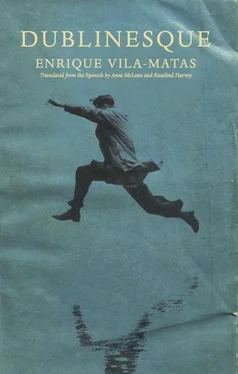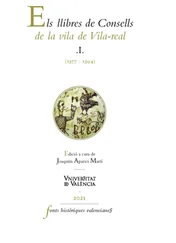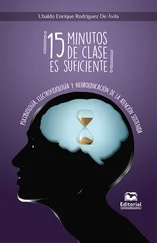“Do you think Paul Auster’s considered a good novelist in Ghana?” he asks Ricardo provocatively.
“Oh, how should I know?” He looks at him strangely. “You’re behaving really oddly today. You never go out, do you? It’s not that you don’t go out much, you just don’t go out, you’re not used to talking to people. It’s good you’re going to get some fresh air in Dublin. Believe me, you’re a bit unhinged. You should start up the publishing house again. You can’t just do nothing. Auster in Ghana! Well, let’s go to La Central.”
They leave the Belvedere. There’s a strong wind. Water’s flooding everything. They’re out in the open. They walk slowly. The rain grows more and more violent. The wind bends their umbrellas. They’ve heard a few apocalyptic voices speaking of a universal flood. Reality is becoming more and more like the installation Dominique is preparing in London.
In the end it’ll turn out to be true that the end of the world isn’t far off. In fact it’s always been clear that the end couldn’t be too far off. While they wait for the end, human beings amuse themselves holding funerals, little imitations of the great end that is to come.
As they’re about to go into La Central, Ricardo throws away his Pall Mall and doesn’t even bother to stamp it out, because the downpour instantly takes care of the butt. As they close their respective umbrellas, a gust of wind hits them with such force that they’re pushed forward and burst into the bookshop, falling comically on their butts on the doormat, just at the moment when a young man is leaving La Central wearing round tortoiseshell glasses, a blue Nehru jacket beneath an old raincoat, and with the collar of his white shirt quite torn.
Riba thinks he knows him by sight, although he can’t manage to place him. Who is it? The man walks insolently past them, indifferent to their ridiculous fall. An unflappable guy. He acts with astonishing coldness, as if he hadn’t noticed that Ricardo and Riba have just fallen over. Or as if he thinks they are two comedians from a silent film. A strange guy. Although he’s come from inside the bookshop, his hair is plastered to his head from the rain.
“We nearly killed ourselves,” comments Riba, still on the floor.
Ricardo doesn’t even reply, perhaps dazed by what’s happened.
It’s quite striking. The indifferent young man looks like the same one who was spying outside his parents’ house the other day, and also the same one he saw from a taxi at the intersection of Rambla de Prat and Avenida Príncipe de Asturias. He tells Ricardo that recently he’s seen the guy with the Nehru jacket everywhere, and for a minute fears his friend won’t even know who he’s talking about. Who knows, maybe he didn’t even notice the young man with the round glasses who walked passed them so indifferently. But this isn’t the case, he soon realizes he saw him perfectly well.
“Well, you know,” Ricardo says. “Always someone turns up you never dreamt of.”
If one day he were to find this much-searched-for author, this phantom, this genius, it would be difficult for such a person to improve on what’s already been said by so many others, about the rifts between the expectations of youth and the reality of one’s later years, what’s been said about the illusory nature of our choices, about how our search for success culminates in disappointment, about the present as fragile and the future as representing a need for control over old age and death. And what’s more, it will always be an annoyance, a malaise of the soul for every perceptive publisher, to have to go out in search of those phantoms, those damned authors. He’s thinking of all this now lying on a beach in front of blue water, surrounded by towels, red bathing caps, gentle waves lapping the warm yellow sand, near the center of the world. A strange beach in a corner of New York’s harbor.
When he wakes up, still embarrassed as much as for having believed he really was on this beach, as for having unconsciously revived the sickness hidden inside every publisher, he dresses at top speed — he doesn’t want to waste time — and goes to his regular branch of the Bilbao Vizcaya bank, knowing there’ll be hardly any customers at this hour and he’ll be able to resolve a tiresome matter as quickly as possible. He’s seen by the smiling bank manager, whom he abruptly informs that he wishes to transfer half the money he has in an investment fund to another account in the same bank, one called External Cash Fund. First he confirms with the bank manager that the bonded capital in this new account is fully guaranteed. Then he carries out the transaction. Then he instructs her to transfer some of the money in his current account to another bank, the Santander. The manager knows she can’t ask him to explain this treacherous gesture, but it’s very likely she’s wondering what they’ve done wrong to make him undertake it. Finally, he signs some more forms and asks for the checkbook they forgot to give him on his last visit. He takes his leave very politely and cynically. Out on the street, he hails a taxi and goes to the other end of the city, to the neighborhood of Sants, to a branch of the Santander bank where Celia’s younger brother, who has worked there for a while, has offered him a pension plan with an excellent seven percent return. Having a pension plan already depresses him, as he’d never imagined growing old, but he prefers to be practical about it.
In the branch of Santander, with the money he’s transferred from Bilbao Vizcaya, he takes out the plan and also signs a good number of forms. The bank manager appears, Celia’s brother’s immediate boss, and shows polite interest in Riba’s longstanding, famous, and now finished publishing work. Riba distrusts so much politeness and suspects it is actually because the manager is on the verge of asking him straight out if the whole book trade is going really badly now. He looks at him almost rudely, and then abruptly starts to talk about New York and about how much he’d like to live there. His excessive praise of this city ends up irritating even the phlegmatic manager, who interrupts him:
“Listen, just one question, and forgive me, sir, but I’m dying to know. . Couldn’t you be happy living in Toro, in the province of Zamora? What is Toro or Benavente lacking to make you not want to go and live there? And sorry for asking — it’s probably because I’m from Toro.”
Riba thinks for just a few seconds, and finally embarks upon the rocky Zamoran path of his answer. He replies in a deliberately gentle, poetic, anti-banking, vindictive tone of voice considering the financial space in which he finds himself.
“It’s a difficult question, but I’ll answer it. I’ve always thought that, when it gets dark, we all need somebody.”
A formidable silence.
“I get the impression,” Riba goes on, “that in New York, for instance, if it gets dark and you’re all alone, the loneliness would always be less dramatic than in Toro or Benavente. Now do you see what I mean?”
The bank manager looks at him, his face almost expressionless, as if he hasn’t understood a thing. He slides some more forms across for Riba to sign. Riba signs and signs. And then, in the same soft voice as a moment ago, Riba requests that tomorrow they withdraw the amount still in the Bilbao Vizcaya fund, and transfer it to one in Santander itself.
An hour later, and he’s carried out all the transfers. It’s better this way, he thinks. Better to have the money spread about than all in one place. He gets into another taxi and goes home. He finds he’s rather exhausted, because it’s been two years since he’s carried out financial transactions or set foot in a bank. It seems to him he’s made a superhuman effort this morning. He starts noticing how incredibly thirsty he is. He’s tired and incredibly thirsty. He has a thirst for evil, for alcohol — well, for water, for calm, for being home again — but above all a thirst for doing wrong, for alcohol. He’d like to have a drink and launch back into his evil ways. After two years of abstinence, he’s confirming an old suspicion: the world is very dull, or — and this is the same — what happens to him is devoid of interest if not told by a good writer. But it was a real drag having to go out and hunt for all those writers, and on top of that never finding one who was truly great.
Читать дальше












